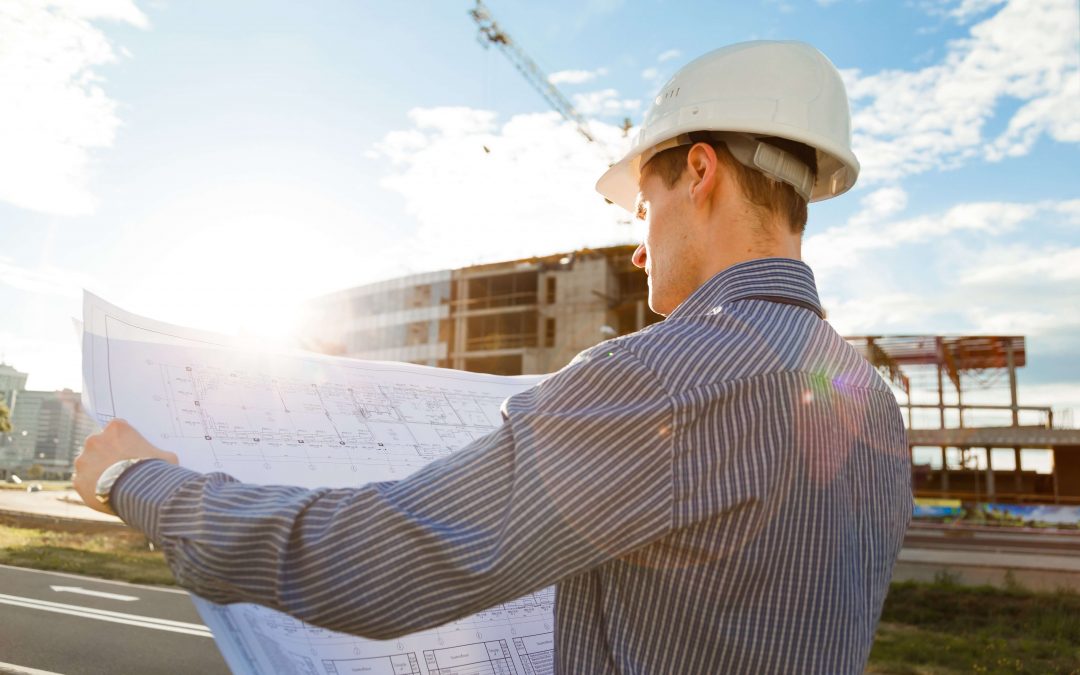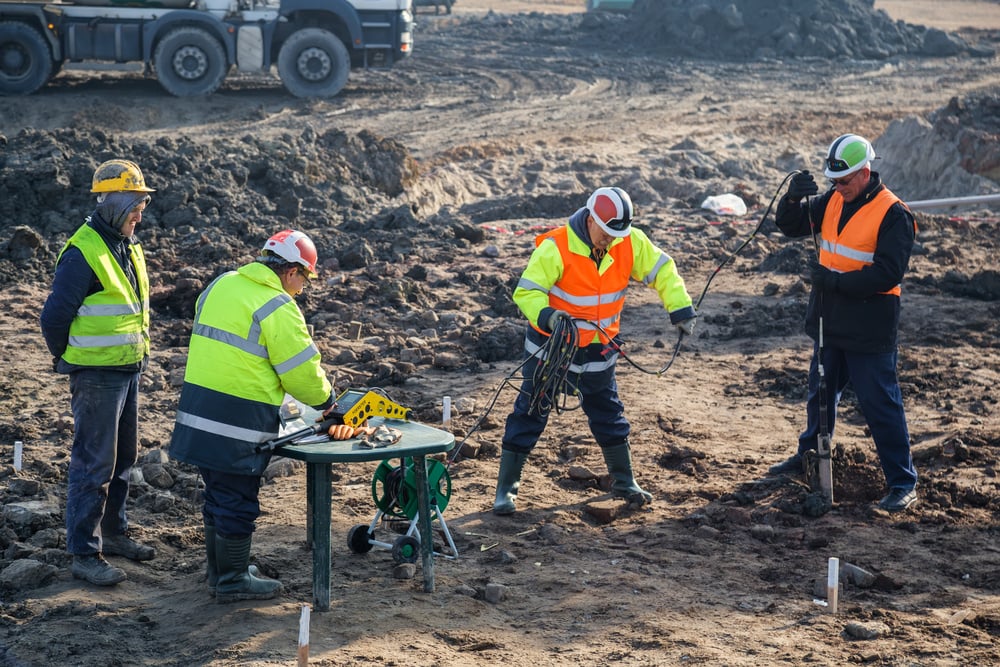The Single Strategy To Use For Specialized Geotechnical Engineering Solutions
The Single Strategy To Use For Specialized Geotechnical Engineering Solutions
Blog Article
Our Specialized Geotechnical Engineering Solutions Ideas
Table of ContentsAbout Specialized Geotechnical Engineering SolutionsEverything about Specialized Geotechnical Engineering SolutionsMore About Specialized Geotechnical Engineering SolutionsOur Specialized Geotechnical Engineering Solutions Ideas
They perform site investigations, collect samples, do research laboratory tests, and assess information to evaluate the suitability of the ground for construction jobs. Based upon their findings, geotechnical engineers provide recommendations for foundation design, slope security, preserving frameworks, and mitigation of geotechnical dangers. They work together with other professionals, such as designers, structural designers, and construction groups, to ensure that geotechnical factors to consider are integrated into the overall project layout and execution.
Structure Style: Geotechnical engineers play an important duty in developing foundations that can safely support the intended structure. They assess the dirt problems and tons demands to identify the suitable foundation type, such as shallow foundations (e.g., footings), deep foundations (e.g., heaps), or specialized strategies like soil improvement. They consider factors such as negotiation restrictions, bearing ability, and soil-structure communication to create ideal foundation layouts.
Specialized Geotechnical Engineering Solutions - Truths
Right here are some types of geotechnical designers: Foundation Designer: Foundation engineers concentrate on designing and examining foundations for frameworks - Specialized Geotechnical Engineering Solutions. They evaluate the dirt problems, load needs, and website qualities to determine one of the most appropriate foundation kind and design, such as superficial foundations, deep structures, or specialized methods like pile foundations
They execute area screening, gather examples, and assess the accumulated data to identify the dirt residential or commercial properties, geologic formations, and groundwater problems at a site. Geotechnical Instrumentation Designer: Geotechnical instrumentation designers concentrate on monitoring and gauging the actions of dirt, rock, and frameworks. They mount and keep instrumentation systems that keep track of factors such as soil settlement, groundwater degrees, slope activities, and structural variations to examine performance and provide early cautions of prospective concerns.
In the office atmosphere, geotechnical designers utilize specialized software application devices to execute estimations, develop designs, and examine information. Specialized Geotechnical Engineering Solutions. They prepare records, evaluation project specifications, interact with clients and employee, and coordinate project activities. The office setting provides a helpful environment for research study, evaluation, and collaboration with various other experts involved in the project
They frequently visit project websites to perform site examinations, analyze geotechnical conditions, and gather information for analysis. These brows through involve traveling to various places, often in remote or difficult surfaces. Geotechnical engineers might execute soil sampling, conduct tests, and screen construction tasks to make sure that the geotechnical elements of the task are being implemented correctly.
Specialized Geotechnical Engineering Solutions Can Be Fun For Anyone
Geotechnical designers likewise work in specialized geotechnical laboratories. Geotechnical lab designers work extensively in these settings, handling testing devices, running tools, and taping information.
Preserving Walls: Creating wall surfaces that hold back dirt to avoid landslides and give security on sloped surfaces. Embankments and Earthworks: Designing embankments for roads, railways, and dams to ensure they stay secure under anxiety. The mining industry counts greatly on geotechnical design to make certain the safety and security and durability of its operations.
With this in mind, we have designed our program to prepare students for success. The Geotechnical Engineering program at the College of Delaware uses chances for sophisticated research and study in: Dirt and rock technicians Soil-structure communication Constitutive modeling Computational geomechanics Structure and planet frameworks engineering Ground improvement Slope security and landslide stablizing Liquefaction of dirts and quake engineering Lab characterization of geomaterials and soil reinforcement Environmental geotechnics Offered the strong requirement for renovation to our country's infrastructurethe American Culture of Civil Designers provided the united state
Geotechnical design is a branch of civil engineering; Specialized Geotechnical Engineering Solutions however, it involves using scientific methods and principles to gather and translate the physical residential or commercial properties of the ground. Geotechnical designers are included in all stages of the style of structures, from principle to building. Their work is important in the style and planning process as they analyze the stability of dirt, clay, silt, sand, and rock, prior to building and construction beginning.
All About Specialized Geotechnical Engineering Solutions
This is followed by a ground examination based upon the searchings for of the workdesk research and involves trial matching and sampling to discover any type of prospective concerns. Geotechnical engineers work within multidisciplinary teams, supported by intermediate and junior engineers as well as by CAD specialists. As a senior geotechnical designer on a hydro plant job, tasks may consist of taking part in technological testimonials (e.g., peer testimonials), tailings clog examinations, dam safety and security reviews, and other studies associated with the style and building of mine waste facilities.
While some experts specialise solely in geotechnics, others might function under titles like design rock hound or ground designer within similar capacities. As a geotechnical engineer, you'll require to: construct and preserve connections with customers and various other specialists included in the site, throughout each projectmaintain safety and security criteria on website be mindful of cost effects when you make recommendationsstudy geological maps and aerial photographs from a series of resources and from different time periodsexamine construction intends to see how viable they are based upon your understanding of the siteinvestigate dangers or geological risks for the sitesearch for environmentally delicate functions, such as garbage dump begin to develop valid and interpretive ground modelsplan area investigationsdrill and analyse samples of bedrock, dirt, groundwater and extra products oversee other specialists on sitesolve technical issues as they emerge, such as unforeseen structures at drill sitesmonitor problems during and after building to make certain frameworks are steady in click here now the brief and long termadd information collected on website to your preliminary researchcreate geotechnical calculations, illustrations, and 2 or three-dimensional computer versions interpreting the datamake suggestions about the recommended use of the website.
There are great deals of chances to satisfy brand-new people, as you'll deal with a range of experts at every website. The work can be difficult as you might be in charge of the safety and security of others while on site. There is also a high degree of check these guys out economic obligation, as the referrals you make can have serious expense effects.

Report this page